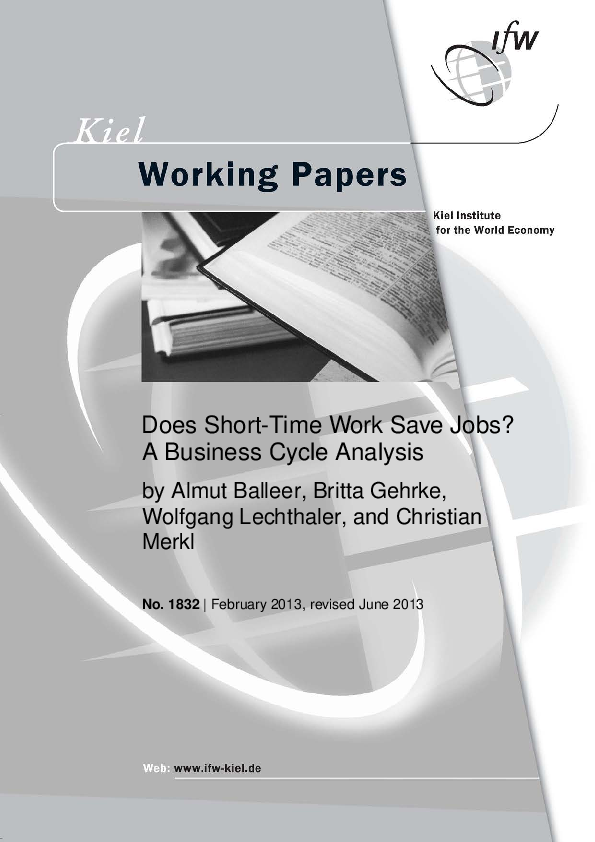Working Paper
Does Short-Time Work Save Jobs? A Business Cycle Analysis
Authors
Publication Date
JEL Classification
Key Words
Related Topics
Business Cycle
Business Cycle World
Fiscal Policy & National Budgets
Growth
Labor Market
Tax Policy
Welfare State
This paper analyzes the effects of short-time work (i.e., government subsidized working time reductions) on unemployment and output fluctuations. The central question is whether the rule based component (i.e., the existence of the institution short-time work) and the discretionary component (i.e., rule changes) stabilize employment over the business cycle. In our baseline scenario the rule based component stabilizes unemployment fluctuations by 15% and output fluctuations by 7%. Given the small share of short-time work expenses in terms of GDP, the stabilization effects are large compared to other instruments such as the income tax system. By contrast, discretionary short-time work interventions do not have any statistically significant effect on unemployment. These effects are based on a structural VAR estimation which is identified using the output elasticity of short-time work estimated from German establishment paneldata. The model shows that non-effects of discretionary interventions may be due to their low persistence.




